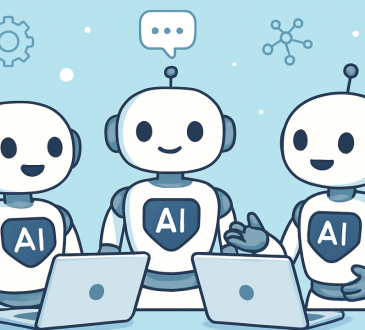The AI Houseplant Club: How Social Media Is Shaping Gardening Trends

In the digital age, the internet has become a blossoming paradise for plant lovers across the globe. Online social media groups, forums, and niche communities related to houseplants have proliferated, providing advice, encouragement, and a sense of belonging.
However, in recent years, a new and controversial entity has been making a home in those spaces: Artificial Intelligence (AI). What was once a useful tool is now being framed as a disruptive force—one that some enthusiasts believe is quietly erasing the very soul of online houseplant culture.
AI Technology in Online Plant Forums
AI has become a buzzword across digital platforms. From automated chatbots on gardening websites to AI-written articles and social media posts, the technology is everywhere.
Plant parents who once ruled platforms like Reddit, Facebook, Instagram, and TikTok with real-life experiences are now bombarded with AI-generated content.
On the surface, AI seems beneficial:
- Generates plant care guides
- Recommends soil types
- Schedules watering based on plant species
- Provides instant responses to FAQs
- Identifies plants from images with impressive accuracy
However, this convenience comes at a price.
Authenticity Is Withering Away
Houseplant communities have long been rooted in authenticity. Members share their:
- Yellowing leaf woes
- Overwatering disasters
- Propagation failures
Not for likes, but for camaraderie.
AI-generated content often lacks the depth, nuance, and personality that give these stories meaning. Instead, it churns out generic advice—frequently repeated across other platforms—with no personal touch.
“I used to love browsing my favorite plant subreddit,” says Emily Tran, a longtime Monstera enthusiast. “But nowadays you’re flooded with AI-written guides and bots pretending to be real people. You can tell because they offer textbook solutions which just don’t fit real life.”
Problems with AI responses include:
- Inconsistent advice
- Potentially harmful suggestions
- Lack of contextual relevance
One user even shared how a “miracle hydrogen peroxide mix”—recommended by an AI—killed his Pothos.
Trust Erosion and Community Fragmentation
The growing presence of AI is disrupting trust within plant communities. Members now question:
- Who is behind each post
- Whether they’re speaking to a person or a machine
This mistrust is causing fragmentation:
- Private, invite-only forums are emerging
- Longtime members are leaving public platforms
Moderators are overwhelmed.
“We are spending hours a day removing low-effort posts that are clearly bots,” says Jordan Reynolds, a moderator on a major online plant group. “It’s exhausting. We’re losing people with something real to contribute who can’t take the noise anymore.”
Platforms like Facebook and Instagram, once proud of AI integration, are now facing pushback from niche communities that feel overrun by algorithmically optimized but emotionally hollow content.
The Commercialization of Plant Culture
AI’s rise isn’t just about automation—it’s about monetization.
As plant-related content becomes more popular, brands and content farms are leveraging AI to generate:
- SEO-optimized blog posts
- Fake product reviews
- Influencer-style posts—with no human author
These often promote:
- Fertilizers
- Pots
- Grow lights
- Other affiliate-linked products
“Now it’s just, everything feels like a sales pitch,” says Leo Martinez, 58, a cactus collector. “Even the advisory content feels designed to sell a product.”
This commodification of plant culture is deeply troubling for veterans who recall a time when passion—not profit—drove content.
Losing the Joy of Discovery
For many, houseplant care is about more than healthy leaves—it’s about:
- Learning by trial and error
- Celebrating small victories
- Bonding over shared mistakes
AI threatens this process by replacing genuine interaction with cold, data-driven efficiency.
“There’s a magic in taking a picture of your dying fiddle leaf fig and having ten heartfelt comments from people who have been there,” says Jasmine Carter, a plant YouTuber with 100,000+ subscribers. “AI can’t replicate that warmth. It just throws out data.”
AI also discourages beginners:
- Bots answer questions instantly
- Real conversation becomes rare
- Newcomers feel judged or overwhelmed, and often leave
- Communities lose new voices and potential future mentors
Can Human Roots Take Hold in the Soil?
Despite the challenges, plant communities are fighting back. Some of the proactive measures include:
- Tightening posting guidelines
- Using bot-detection tools
- Encouraging personalized posts
- Promoting hashtags like #RealPlantParent and #NoBotsAllowed
Some platforms are exploring hybrid models, where:
- AI is used only for moderation or fact-checking
- Human-led discussions remain central
Others have moved to decentralized forums or Discord servers where AI is completely banned. These efforts reflect a broader societal need to protect meaningful human interaction online.
Meanwhile, awareness is increasing. Users are becoming better at:
- Spotting AI content
- Flagging suspicious posts
- Prioritizing real human connection
A Future Worth Nurturing
The invasion of AI into houseplant communities is a cautionary tale about what happens when technology outpaces ethics. While AI itself isn’t inherently harmful, its unchecked use risks unraveling the foundation of what makes communities thrive: connection, experience, and support.
Plant lovers are nurturers by nature. They value:
- Patience
- Diligence
- Human touch
In an increasingly automated world, preserving these values in online spaces is more important than ever.
It’s not a battle against AI—but against the hollowing out of spaces that once brought people together.
Like plants, communities need the right environment to flourish. And it’s up to us—flawed, passionate, beautifully imperfect humans—to make sure our roots stay strong and grounded.




